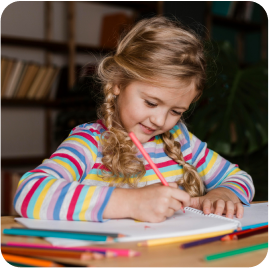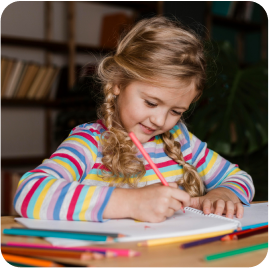Giggleswick School – 11+ Practice Papers with Video Explanations
Giggleswick School is a prestigious independent day and boarding school, located in Giggleswick, North Yorkshire, England. It is known for its strong academic performance, outstanding sports and arts facilities, and excellent pastoral care. The school provides education for students aged 2 to 18.
1. History & Background
- Founded in 1512, Giggleswick School is one of the oldest independent schools in England.
- The school was established as a Chantry School by James Carr, later receiving a Royal Charter from King Edward VI in 1553.
- Over the centuries, Giggleswick evolved into a leading co-educational boarding and day school, maintaining its traditional values while adopting modern teaching methods.
- The school is set in a stunning 215-acre rural campus, offering a safe and inspiring environment for learning.
2. Pupil Numbers
- Giggleswick School educates approximately 500 students, covering:
- Giggleswick Pre-Prep & Junior School (Ages 2–11) – Around 150 pupils
- Senior School (Ages 11–18) – Around 350 pupils
- Around 50% of students are boarders, with options for full, weekly, and flexi-boarding.
- The school attracts both UK and international students, creating a diverse and inclusive community.
3. Academic Reputation & Awards
Giggleswick School is recognised for its academic success, university placements, and co-curricular achievements.
📈 Exam Performance & Ofsted/ISI Rating
- The school offers GCSEs, A-Levels, and BTEC qualifications, catering to different academic strengths.
- Students progress to Russell Group universities, Oxbridge, and international institutions.
- Rated “Excellent” by the Independent Schools Inspectorate (ISI) for academic achievement and personal development.
🏆 Awards & Achievements
- Sporting Excellence – Giggleswick has a strong tradition in rugby, cricket, and athletics, with students competing at a national level.
- STEM & Science Success – Participation in UK Maths Challenges and science Olympiads.
- Duke of Edinburgh’s Award Scheme – A high percentage of students complete the Bronze, Silver, and Gold awards.
- Music & Performing Arts Achievements – Regular concerts, theatre productions, and national arts competitions.
🏫 Giggleswick School – Contact Information
School Name: Giggleswick School
Type: Independent Co-educational Day and Boarding School (Ages 2–18)
📍 Address:
Giggleswick School
Giggleswick
Settle
North Yorkshire
BD24 0DE
United Kingdom
☎️ Telephone:
-
Main Reception: +44 (0)1729 893000
📧 Email:
🌐 Website:
https://www.giggleswick.org.uk
📱 Social Media:
-
Twitter/X: @GiggleswickSch
-
Facebook: Giggleswick School
-
Instagram: @giggleswickschool
📝 Exam Board: School’s own test
You can view the school’s location on the map below:
How to Use ExamTutor 11 Plus Practice Papers with Video Explanations to Achieve High Scores for Giggleswick School, in the 11+ Entrance Exam
Giggleswick School uses its own 11+ entrance test for admission to Year 7. To secure a place, students must perform well in the exam, which assesses English, Mathematics, and Reasoning skills.
Why Use ExamTutor 11 Plus Practice Papers with Video Explanations?
✔ Designed for Independent School Entrance Exams – Covers question types that may appear in the Giggleswick School entrance test.
✔ Video Explanations for Every Question – Helps students understand mistakes and improve problem-solving skills.
✔ Identifies Strengths & Weaknesses – Tailored practice to improve weaker areas.
✔ Boosts Confidence & Exam Performance – Familiarisation with exam-style questions reduces anxiety.
How to Use ExamTutor for Giggleswick School 11+ Exam Preparation
1. Understand the Exam Format
📌 Giggleswick School 11+ entrance test typically includes:
- English – Reading comprehension, creative writing, and grammar.
- Mathematics – Problem-solving, arithmetic, and numerical reasoning.
- Reasoning (Verbal & Non-Verbal) – Logical thinking, pattern recognition, and spatial awareness.
✔ Start by introducing your child to each section and understanding what is tested.
2. Create a Structured Study Plan
✔ Allocate dedicated study time for each subject every week.
✔ Use ExamTutor practice papers to track progress.
✔ Practice under timed conditions to improve speed and accuracy.
3. Boost Confidence with Video Explanations
Some 11+ question types can be challenging for students. Our expert-led video explanations:
🎥 Break down complex questions step by step
🎥 Teach proven problem-solving techniques
🎥 Show shortcuts and strategies to save time in the exam
🎥 Help students reinforce learning and build confidence
How to Use Video Explanations Effectively:
✅ Review incorrect answers with video solutions – Identify and correct mistakes early.
✅ Take notes on key strategies – Record important problem-solving techniques for future reference.
✅ Rewatch explanations for difficult topics – Reinforce learning by revisiting challenging areas.
4. Develop Exam Strategies & Time Management
✔ Teach skimming and scanning techniques for comprehension questions.
✔ Use mental maths tricks to speed up calculations.
✔ Practice logical reasoning techniques to improve accuracy in reasoning questions.
5. Take Practice Exams & Review Performance
✔ Schedule practice exams close to the real test date.
✔ Analyse results and focus on weak areas.
✔ Use ExamTutor’s tutor-led video explanations for targeted revision.
6. Boost Confidence & Reduce Exam Stress
✔ Maintain a positive and encouraging learning environment.
✔ Encourage regular breaks and revision balance.
✔ Use mindfulness techniques to stay calm before the exam.
Final Tips for Success
✔ Start preparation early – At least 6-12 months before the exam.
✔ Use ExamTutor’s practice tests regularly – Build confidence with real exam-style questions.
✔ Practice writing skills – Creative writing is often a key component in independent school exams.
✔ Stay consistent – Small daily practice sessions are more effective than last-minute cramming.
✔ Attend an open day or taster session at Giggleswick School – Familiarity with the school environment can boost confidence.
By using ExamTutor 11 Plus Practice Papers with Video Explanations, your child will gain strong exam skills, improve accuracy, and build confidence—increasing their chances of success in the Giggleswick School 11+ Entrance Exam.
📌 Start practicing today to help your child achieve a top score and secure a place at Giggleswick School! 🚀
Giggleswick School – Year 7 Admissions Criteria & How to Apply
Giggleswick School is a leading independent co-educational day and boarding school in North Yorkshire, offering strong academic standards, excellent extracurricular opportunities, and outstanding pastoral care. Admission into Year 7 (11+ entry) is based on entrance assessments, interviews, and school references.
1. Admissions Criteria for Year 7 (11+ Entry)
To gain a place at Giggleswick School, students must:
✔ Perform well in the entrance assessment, which evaluates English, Mathematics, and Reasoning skills.
✔ Attend an interview, where academic potential, personal interests, and suitability for the school are assessed.
✔ Provide a school reference, detailing academic ability, behaviour, and character.
Day & Boarding Options
- Giggleswick offers both day and boarding places at Year 7.
- Boarding options include full, weekly, and flexi-boarding.
- Limited places are available, making admissions competitive.
2. How to Apply for Year 7 Admission
Step 1: Registration & Application
- Parents must complete an online application form via the Giggleswick School website.
- A non-refundable registration fee (typically around £100) is required.
- Application deadline: Usually in the Autumn Term of Year 6 (October–November).
Step 2: Entrance Examination
- The Year 7 entrance assessment takes place in November or January of Year 6.
- The tests include:
📌 English – Reading comprehension, grammar, and creative writing.
📌 Mathematics – Problem-solving, arithmetic, and numerical reasoning.
📌 Verbal & Non-Verbal Reasoning – Logical thinking and pattern recognition.
Step 3: Interview & School Reference
- Shortlisted candidates are invited for an interview with senior staff.
- The interview assesses:
📌 Academic potential and enthusiasm for learning.
📌 Personal interests, confidence, and communication skills.
📌 Suitability for Giggleswick’s values and school culture. - A confidential reference is requested from the applicant’s current school.
Step 4: Offer of a Place
- Admissions decisions are announced in February or March of Year 6.
- Parents must accept the offer and pay a deposit to confirm the place.
3. Key Dates for Year 7 Entry (Typical Timeline)
📅 September – November (Year 6) – Registration deadline.
📅 November – January (Year 6) – Entrance exam at Giggleswick School.
📅 January – February (Year 6) – Interviews and school reference checks.
📅 March – April (Year 6) – Offer letters sent and acceptance deadline.
📅 Summer Term (Year 6) – Induction and transition events for new students.
4. Scholarships & Bursaries
- Academic Scholarships – Awarded to top-performing candidates in the entrance exam.
- Music & Performing Arts Scholarships – For students with exceptional musical or theatrical talent.
- Sports Scholarships – Available for students excelling in rugby, hockey, netball, cricket, and other sports.
- Art & Design Scholarships – For students demonstrating outstanding artistic ability.
- All-Rounder Scholarships – For students who show academic potential combined with strengths in sport, arts, or leadership.
- Bursaries – Means-tested financial support is available for families requiring financial assistance.
5. Additional Information
- School Fees: Giggleswick School charges annual tuition and boarding fees, with additional costs for extracurricular activities.
- Open Days & Taster Sessions: Families are encouraged to attend an open day to experience life at Giggleswick School.













